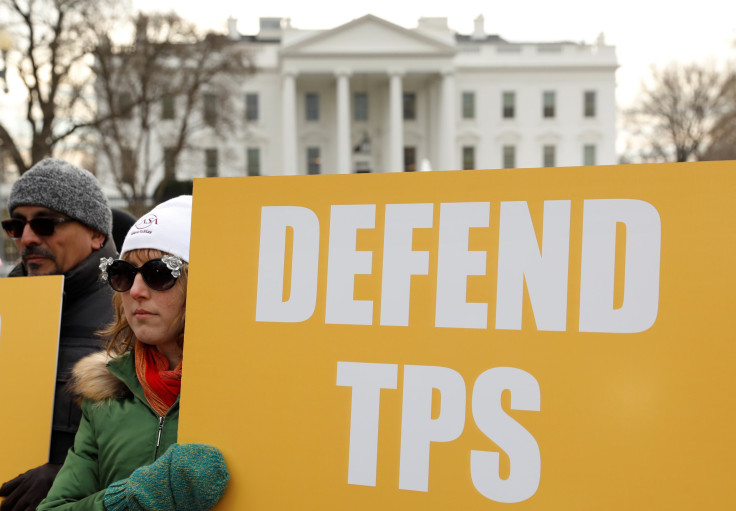
The fate of almost 200,000 Salvadorans is in the hands of the government of President Donald Trump. It was expected that the morning of Monday, January 8, the current administration announced if the Temporary Protected Status, also called "TPS, was going to be renewed or canceled. Hopeful but nervous thousands of families who lived since 2001 in the United States received the devastating news that the TPS had come to an end.
The TPS is granted to eligible nationals of designated countries, allowing them to live and work in the United States legally. These immigrants qualify if they are temporarily unable to safely return to their home country because of ongoing armed conflict, an environmental disaster, or other extraordinary and temporary conditions.
According to the statement made by Secretary of Homeland Security Kirstjen M. Nielsen, the "decision to terminate TPS for El Salvador was made after a review of the disaster-related conditions upon which the country’s original designation was based and an assessment of whether those originating conditions continue to exist as required by statute." As presented by the release, "the Secretary determined that the original conditions caused by the 2001 earthquakes no longer exist. Thus, under the applicable statute, the current TPS designation must be terminated."
The New York Times informed Salvadorans were by far the largest group of foreigners benefiting from temporary protected status, following the 2001 earthquake. Homeland Security also informed that after that tragedy "El Salvador received a significant amount of international aid to assist in its recovery efforts, including millions of dollars dedicated to emergency and long-term assistance. Many reconstruction projects have now been completed. Schools and hospitals damaged by the earthquakes have been reconstructed and repaired, homes have been rebuilt, and money has been provided for water and sanitation and to repair earthquake damaged roads and other infrastructure."
In order to allow a transition, El Salvador and Salvadorans living in the U.S., will have 18 months to arrange for their departure or to seek an alternative lawful immigration status in the United States, if eligible. With this 18-month delayed termination, the Department of Homeland Security also clarified that the Congress can also put over the table a potential legislative solution to help those currently protected by TPS who have lived and worked in the United States for many years.
In November 2017, the Acting Secretary of Homeland Security Elaine Duke, announced that about 2,000 protected Nicaraguans who have Temporary Protected Status must leave or seek another form of legal residency. From July 23, 2017 through January 22, 2018, Secretary Kelly also had to re-evaluate the designation for Haiti to determine whether another extension, a re-designation, or a termination is warranted, in full compliance of the Immigration and Nationality Act.
Later, Duke announced her decision to terminate TPS for Haitians with a delayed effective date of 18 months to allow for an orderly transition before the designation terminates on July 22, 2019.
If you are a TPS recipient and have questions about your status please contact: 800-375-5283 or visit here.
© 2025 Latin Times. All rights reserved. Do not reproduce without permission.






